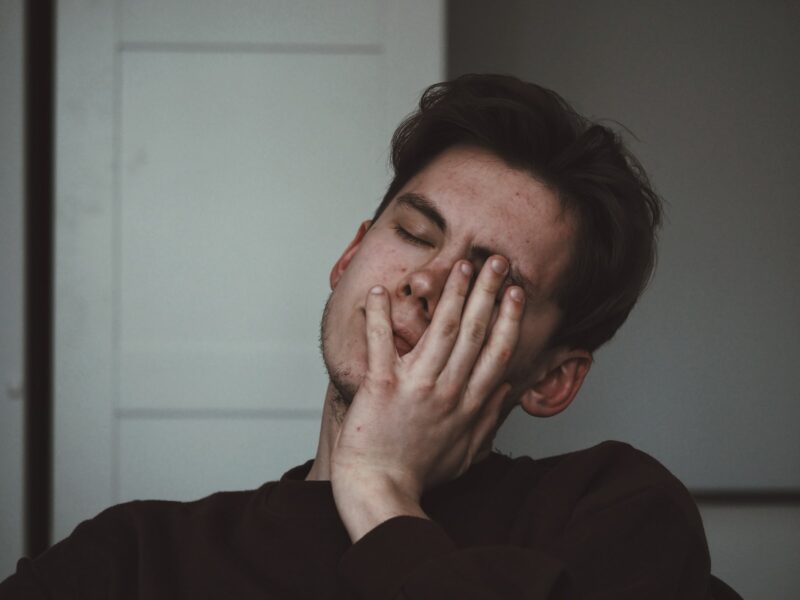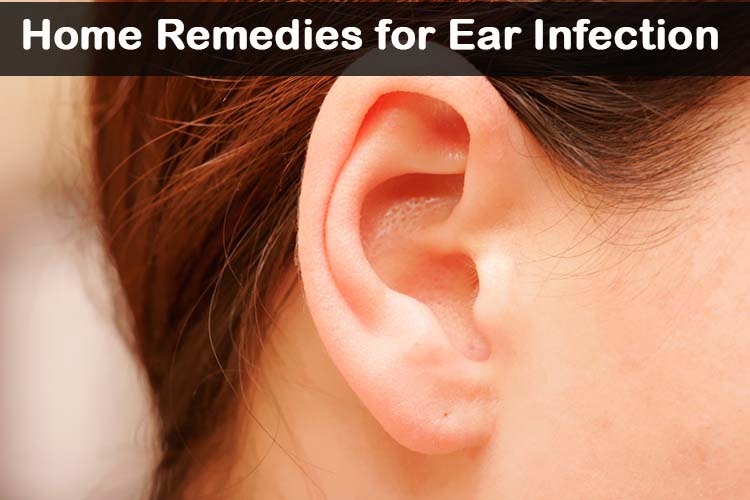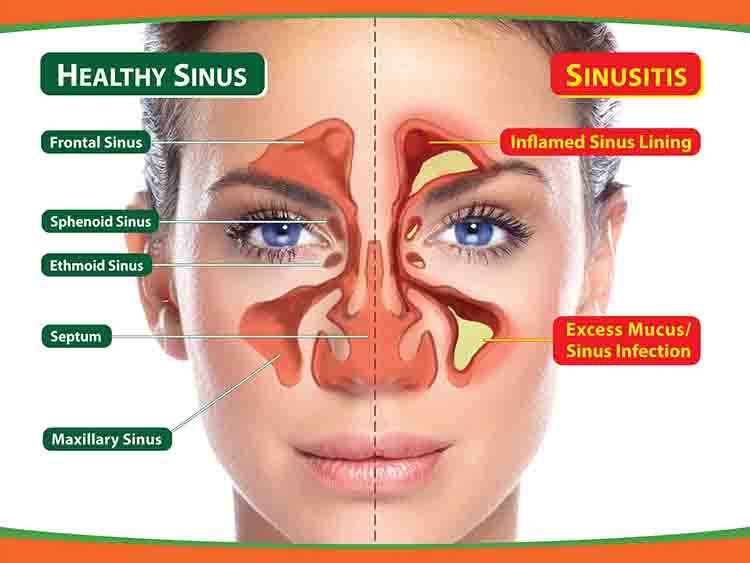Pain in one or both of your ears? Do you perhaps have some difficulty hearing? Discharge from your ears? You most likely have an ear infection. Children especially are prone to additional symptoms like fever and headaches too. An ear infection (scientifically known as acute otitis media) usually clears up on its own but it can take a few days and can be very painful. Consider peroxide for ear infections as a natural DIY remedy.
The pain and hearing loss (which is generally caused by swelling) is due to inflammation. Inflammation is how your body tries to heal you, but sometimes it does so excessively causing pain and swelling. Most of time ear infections occur due to mucus or other fluids becoming trapped in the ear, usually due to colds, flu, and allergies. Not nice at all.
Swimming or washing your ears can also let water into your ear canal where it becomes trapped. The moisture in the usually dry space of your ear canal is the perfect environment for viruses, fungi, and bacteria (1). Ear infections can occur in the outer, middle, or inner ear. The most common medical treatments involve corticosteroids and antibiotics.
These can cause side effects and antibiotic resistance is a huge problem (2, 3). Antibiotics should only be used when absolutely necessary. Rather try a remedy like peroxide for an ear infection.
Can You Put Peroxide in Your Ear?
Yes! Hydrogen peroxide (H2O2) is a very common remedy used for various ailments. It may be scary to look at a product that you may use to keep your white laundry white and that is common in products that you use to bleach your hair, but if used correctly, it is perfectly safe to use, and an effective treatment too. Many have used peroxide for an earache and found it soothing.
Here’s what may be responsible for this:
- Hydrogen peroxide can kill certain types of bacteria. This is because of its oxidizing effect. Many types of bacteria, including those that can cause an ear infection are destroyed by oxygen.
- Hydrogen peroxide prevents the formation of new bacteria so it will prevent your infection from becoming worse.
- Hydrogen peroxide may have anti-inflammatory effects which reduce the pain and swelling. This is why most people find it soothing.
- If you have a build up of ear wax that’s causing your ears to pain, hydrogen peroxide is an excellent remedy for that too. You can use the recommended remedies below.
How to Use Peroxide for an Ear Infection
Never use a concentration stronger than 3% hydrogen peroxide. Peroxide is a mild acid and at 3% it’s diluted enough for home and personal use. Any stronger than that and you are looking at industrial strength concentrations. Definitely not safe to use on your skin. You can find it in most drug stores or online.
You can use hydrogen peroxide for ear infection in adults as well as children. When you use it on your children, always dilute it with water or saline solution. When you use peroxide for ear pain, you will feel it bubbling. This is normal and has to do with the oxidizing effect.
Use these remedies 2-3 times per day until the ear infection is gone. Keep a cloth where it’s easy to reach every time you use one of these remedies. With all these remedies, be sure to warm them up so they are around body temperature to prevent more pain and dizziness.
1. Peroxide Ear Drops
It’s best to lie down on your side as this will be the most comfortable. You can just sit or stand and lean your head to the side but you are likely to get a sore neck. You will also need to use cotton wool to prevent it from running out of your ear. This remedy is best used for adults only.
- Use a clean medicine dropper or bulb syringe and squirt some peroxide into your ear.
- Keep it in your ear for up to 10 minutes.
- Let it drain out, preferably over the sink.
- Rinse your ear out with warm distilled water.
- Dry your ear with a clean cloth.
Note: Make sure that your ears are dried properly. You can use a hairdryer on the lowest setting to do this. If you don’t have a hair dryer, try mixing white or apple cider vinegar and rubbing alcohol in equal parts and putting a few drops in your for a minute or so before pouring it out. The alcohol has a drying effect (4).
2. Peroxide and Water
For kids and those with sensitive skin and/or ears.
- Mix together distilled water and peroxide in equal parts.
- Follow the rest of the instructions for remedy 1.
Note: Make sure that your ears are dried properly. You can use a hair dryer on the lowest setting to do this. If you don’t have a hair dryer, try mixing white or apple cider vinegar and rubbing alcohol in equal parts much the same as you would use the peroxide ear drops remedy (4).
3. Peroxide and Saline Solution
Saline solution is a mixture of salt and water and sometimes baking soda. It can be used just like water to dilute the peroxide. You can then use the remedy the same way you would the peroxide ear drops. It’s also safe for your children.
Make your own saline solution:
- Simply add 1 teaspoon of salt to 2 cups of distilled water and stir until it’s dissolved.
- Optional: Add ½ teaspoon of baking soda.
- If you don’t have distilled water, first boil the water and then add the salt once the water has cooled.
- You can store the leftover saline solution in a closed jar in the fridge for up to 3 weeks.
You may find that your ears won’t need the hair dryer or vinegar and rubbing alcohol drops after using this remedy as salt has a drying effect.
4. Peroxide and Essential Oils
Essential oils also have antimicrobial and anti-inflammatory properties (5). You can add 1-2 drops to all 3 versions of the peroxide drops.
Here are the best essential oils to use:
- Geranium
- Lavender
- Thyme
- Tea tree oil
- Rosemary
Tips and Precautions
- Never use peroxide if you have a perforated eardrum. It’s best to speak to your doctor about a safe course of treatment in this instance.
- If you have severe pain, a high fever (102°F), or there is no improvement after a few days, you should arrange to see your doctor.
- If you or your child has a bad reaction to the hydrogen peroxide, rather use one of these other remedies for ear infections.
- Try to keep your allergies under control by taking an antihistamine or avoiding the triggers. Blow your nose as necessary.
- Swimmers ear drops can be very helpful for those who tend to get water in their ears often and is a food alternative to the not so great smelling DIY vinegar and rubbing alcohol drops. Otherwise, use the hairdryer trick.
- If you have a cold or flu, blow your nose regularly and keep your hands clean. You can try these remedies for sinus infections. Drink lots of fluids, especially water.
- Build up your immune system by eating a wide variety of fruits and vegetables, limiting junk food and processed food, exercising regularly, and making sure you get enough good quality sleep.
- If you smoke, try not to smoke when you are sick or have an ear infection. It’s best to quit smoking for your overall health.
- Keep your stress levels low by doing things that you enjoy and delegating work to those who are able to help. Meditation might also be helpful to you.
We hope you feel better soon! Curious what else you can do with hydrogen peroxide? Check out our solutions for cold sores, sore throat, and even athletes foot.









